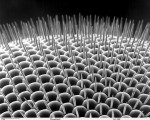of Tad Montgomery & Associates
The following principles are inspired by the elegant beauty of permaculture design, the wisdom of bioregional philosophy, and the long-term perspectives of regenerative economics, Anthroposophy and Agni Yoga.
 The Problem Is the Solution
The Problem Is the Solution
That which troubles us often holds the potential for transformation. Challenges can become opportunities if we have the ability to look at them with fresh eyes. One person’s waste is another’s resource. Permaculture design understands this concept quite well.
 Energy Saved Is Worth More than Energy Earned
Energy Saved Is Worth More than Energy Earned
It is almost always cheaper, and more beneficial, to find ways to conserve energy than new ways to produce it. Good design that makes use of passive energy flows pays for itself in many ways. We recommend the use of net energy calculations (EROEI) to choose between technologies. Our designs minimize embodied energy and environmental footprint.
 Aim for Regenerativity
Aim for Regenerativity
Considering the rapid degeneration of the global biosphere, sustainability is not an adequate or sufficient goal. TM&A strives for regenerativity – the design and use of systems and technologies that not only are ‘sustainable,’ but actually work to restore topsoil and biodiversity, that sequester carbon, and that leave people and places better than they were. Regenerativity gives more than it takes. Sacrifice, with its own rewards, can replace acquisition.
 Prefer Nature
Prefer Nature
Destruction of the environment can only be performed by people who are emotionally divorced from it. TM&A designs systems that reconnect people to nature, that favor biological solutions over technological ones, that seek the wisdom of nature, and celebrate in it.
 Simplicity, Beauty & Fun
Simplicity, Beauty & Fun
Elegant simplicity has greater longevity, and is generally much more useful, than complex ugliness. Designs that promote playfulness and contentment serve humanity in important ways. Joy is its own kind of wisdom, and the benefits of beauty go well beyond dollars.
 Robustness, Flexibility & Resilience
Robustness, Flexibility & Resilience
Society is changing at an astounding pace. It is said that the next 20 years will be nothing like the previous 20. Good design should plan for that. We design systems that promote personal, family, institutional and cultural resilience. It is not enough to buy local, we should invest in the development of local production. TM&A’s designs favor technique over technology.
 Observe
Observe
A good designer will spend time looking for patterns, conflicts, relationships and synergies. Patience can be critical to discovering what is needed in a system: studying the ebb and flow of cycles, learning the resources and drains of each element. Flux points and trim tabs, where small amounts of time, money or energy have disproportionate benefits, can save tremendously in the long run. Knowing the history, whether it’s in the soil or a social system, opens new dimensions of understanding.
Preserve and Nourish That Which Is Sacred
 Encourage Emotional Intelligence
Encourage Emotional Intelligence
Many projects languish or die due to a lack of personal self-awareness and/or good group facilitation. TM&A encourages the building of a culture where emotional intelligence is taught, practiced by leaders, and learned by all. One aspect of this is to honor a questioning ignorance; another is to appreciate those who listen well.
 Edges Are Fertile
Edges Are Fertile
The boundaries between plant communities, cultures, even crystals are often the most interesting and productive places. They should be developed, and optimized. “Transitions are fecund.”
 Support Your Friends
Support Your Friends
We find that sustainability, resilience and holistic social systems are facilitated when gratitude is practiced, common ground is the focus of attention, and differences are minimized. We believe that good design actively solicits the input of all stakeholders.
 Promote Diversity & Redundancy
Promote Diversity & Redundancy
A diverse ecosystem is generally more resilient and more productive than its less diverse counterpart. Good ecological design seeks the benefits in that which is different or unfamiliar. TM&A designs in such a way that critical needs are met through multiple methods. Each element in a system can and should serve multiple functions.
 Define Goals and Ideals Clearly
Define Goals and Ideals Clearly
Without clear goals, good design is impossible.
Without ideals, life is like a rudderless ship.


